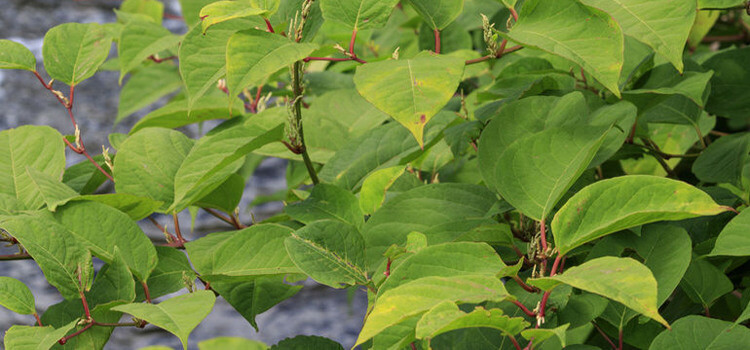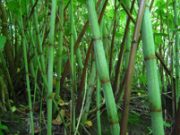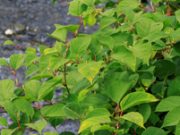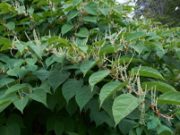
The presence of Japanese knotweed can slow a house sale down or even grind it to a halt. Getting the right advice on how to identify and treat it can ensure that the value of your home doesn’t suffer, and if you are buying, understanding knotweed can give you the confidence to negotiate and land your dream home.
Japanese knotweed was brought to the UK in the mid-19th century. In this Victorian era, it was initially loved because it was strong as well as attractive so could easily be used an alternative hedgerow plant. The secret to its strength goes way back to its natural habitat of volcanic ash. It was able to survive such extreme conditions of ash, molten rock and poisonous gases because of its extensive root systems. It roots were able to absorb very limited nutrients in such harsh conditions to keep it alive.
Why is it such a problem?
Although most people have heard of Japanese knotweed there is a lot of misunderstanding and confusion as to what we need to be aware of, especially when buying a property.
The reason it is such a problem in the UK is that it has no natural predators, and so it is left to grow unchecked and unchallenged. In Japan there are bugs and fungi which feed on it which we just don’t have here in the UK.
Although respected in nature, this plant can become a pest in built up areas where it can cause vast damage to buildings and de-value property as it takes hold. With its ability to grow up to 3 meters in height and push through the hardest materials such as asphalt, concrete, cavity walls and drains, and so it’s now listed as the number one, most invasive plant species in the UK.
What does it look like?



Identifying Japanese knotweed can be hard, but here are a few things to look out for:
How to treat it?
Cutting it down, burning it or burying it, won’t work. This plant is just too resilient for that. Even common weed killers won’t shift it. The complex root systems can easily lie dormant until conditions are right to grow again.
How does Japanese knotweed affect the property I’m buying or selling?
If you are buying or selling a property in which you have identified Japanese knotweed, it doesn’t mean the sale will fall through. As long as both parties are willing to come to a resolution and willing to make some adjustments to the original agreement, you can get back on track and go ahead to completion. As part of the conveyancing process, the seller will declare that the property is affected. Usually it is the seller’s responsibility to put a plan of treatment into place and obtain a reasonable guarantee. Once this guarantee is in place the mortgage should be released and the sale should proceed.
In addition, buyers can protect themselves by taking out an insurance policy to cover for damage caused by plants such as Japanese knotweed. This will cover the cost of treatment and repairs needed. It will also cover the buyer for legal defence, just in case the knotweed creeps into a neighbouring property and causes damage.